Libya floods: UN calls for £56 million in aid support for Libya flood victims
- Published
- comments
Libya floods: BBC correspondent Anna Foster reports from Derna
The United Nations (UN) has called for £56 million ( $70 million) appeal to help the areas of Libya devastated by floods.
It follows a powerful storm which has badly affected the North African country, where the authorities have declared a state of extreme emergency.
The eastern cities of Benghazi, Sousse, Derna and Al-Marj were all affected.
Dams and bridges in the city of Derna collapsed, leaving much of the area under water, and many thousands have lost their homes and their lives.
The UN humanitarian agency OCHA said an estimated 884,000 people directly impacted by the storm and flash floods need assistance.
An investigation has been launched into why the floods were able to cause such devastation.
Aid arriving but much more needed
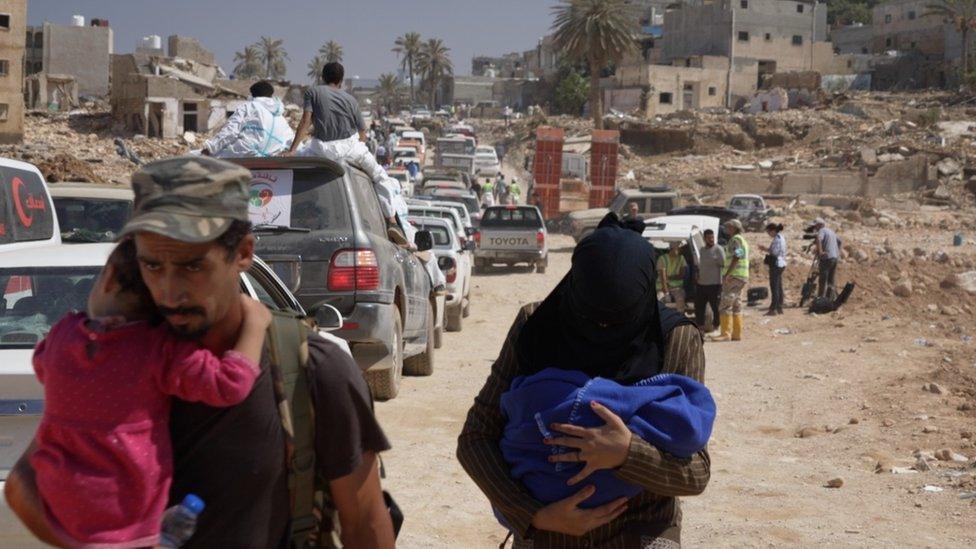
Many people have lot their homes in the disaster and are in need of shelter
International aid workers say damage to roads has made it difficult to reach the area, and the political situation in Libya has made things difficult too - with the country split between two rival governments and many armed groups.
BBC reporter Anna Foster is in Derna and says not enough of the aid, medicine and clean water has reached those who've been made homeless, and many areas still have no electricity, so rescue efforts are often happening in the dark.
Emergency relief missions have gathered pace with Turkey, Egypt and the United Arab Emirates among the first nations to rush aid to the disaster-hit country.
The UK has promised its support for those affected by the both floods in Libya and the earthquake in neighbouring Morocco, allocating an aid package worth up to £10 million.
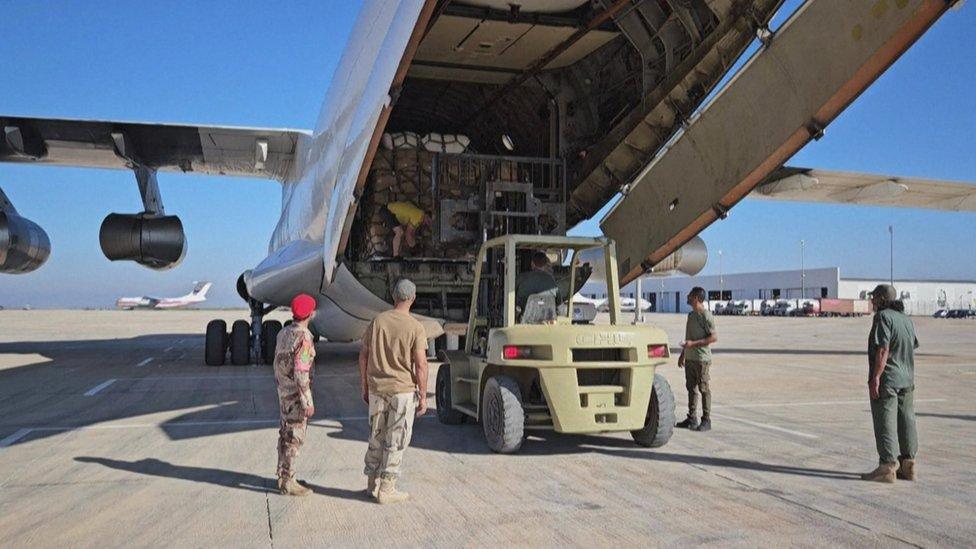
Minister for the Middle East and North Africa, Lord Ahmad said: "The UK is committed to supporting the Libyan people during this extremely difficult time. "We will increase UK funding to the crisis response and deliver crucial life-saving provisions, including shelter, water filters and medical assessments."
A spokesperson for the United Nations' (UN) humanitarian office, Jens Laerke, told the BBC that there were still survivors being rescued and that it would be some time before they knew the true number of casualties.
"We are trying to not to have a second disaster there. It is critical to prevent a health crisis, to provide shelter, clean water and food," he said.
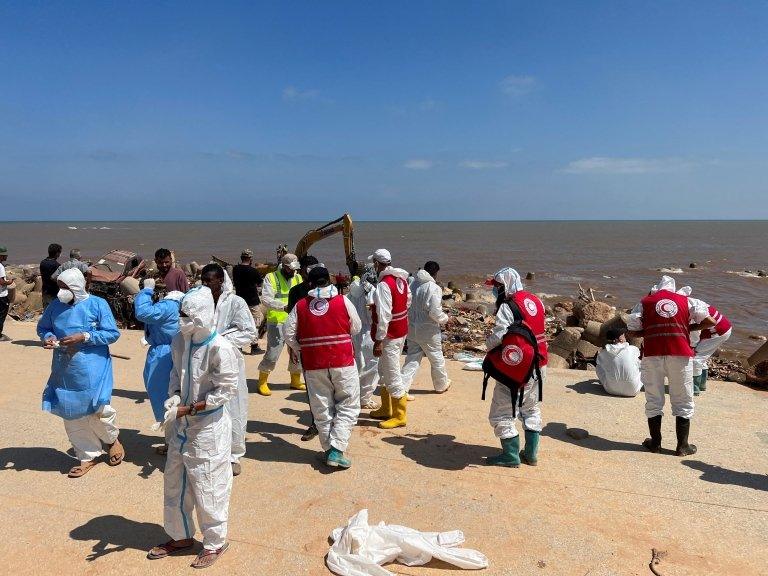
Teams are finding it hard to get aid to the people who need it
The UN's World Food Programme said it began to distribute food aid to more than 5,000 families displaced by the flood, adding however that thousands in Derna were "homeless and without food".
The European Union said assistance from Germany, Romania and Finland had been dispatched including hospital tents and power generators, as well as food, water tanks and blankets.
The United States, Algeria, Qatar, Italy, France and Tunisia have all also offered assistance.
Libya floods - what happened?
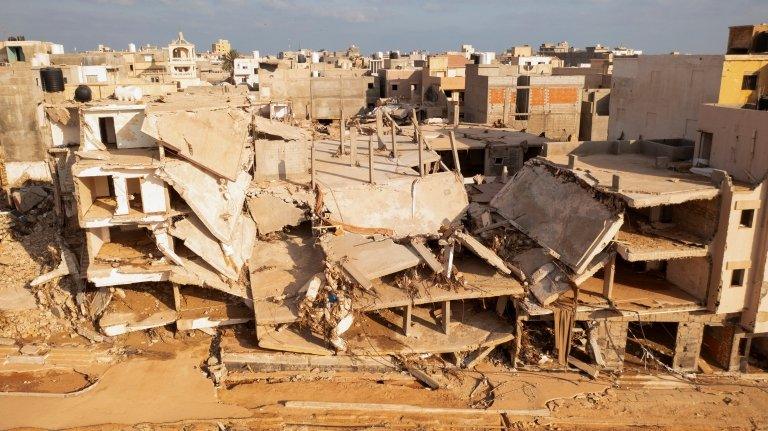
The floods have caused huge damage to buildings
The severe flooding, affecting parts of eastern Libya, is a result of Storm Daniel which hit the country on Sunday 10 September.
BBC Weather said that Bayda, a town around 165km west of Derna, recorded 414mm of rain in 24 hours during Storm Daniel.
September is usually a dry month in north-eastern Libya - but the recent rain accounts for 77% of Bayda's usual rainfall over a whole year.
Climate scientists have warned that global warming means more water evaporating during the summer, leading to more intense storms.
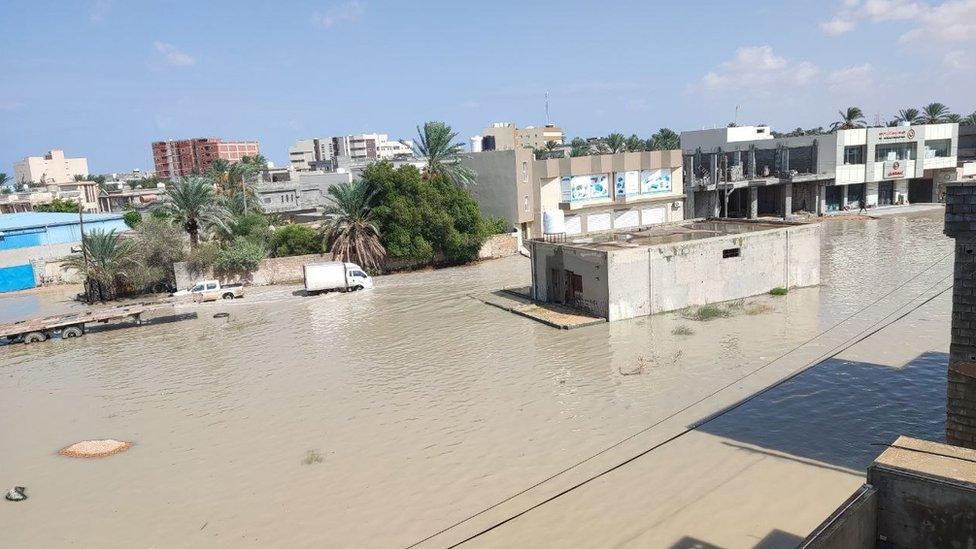
The city of Misrata, in the west, was among those hit by heavy rains
Alongside areas in the east, the western city of Misrata was also hit by the floods.
Thousands of people are thought to have been killed and there are more than 10,000 missing, charity Red Crescent has said.
Reports from the country have said there is no clean drinking water in Derna, and a lack of medical supplies - with the only hospital in Derna unable to take any more patients.
